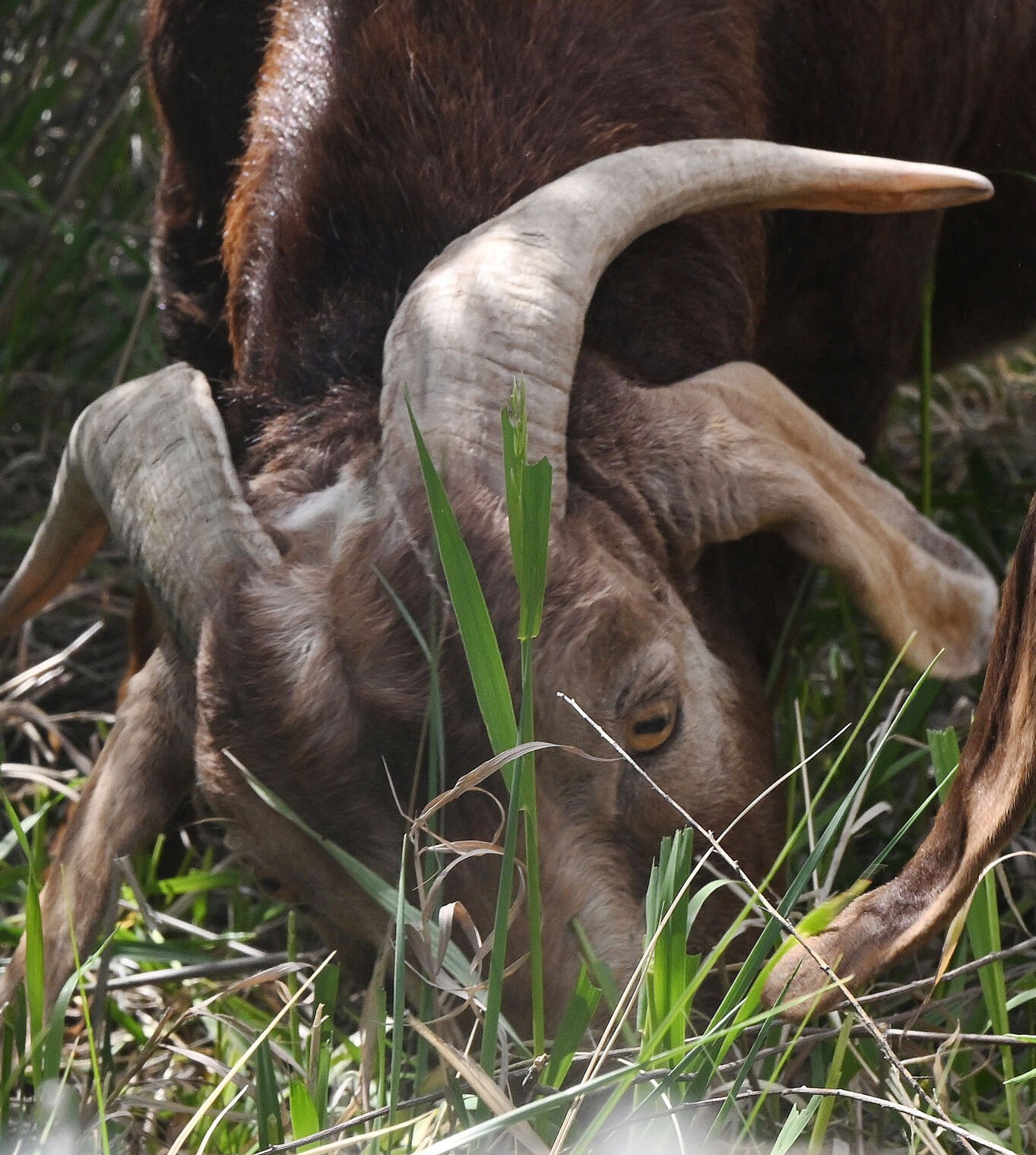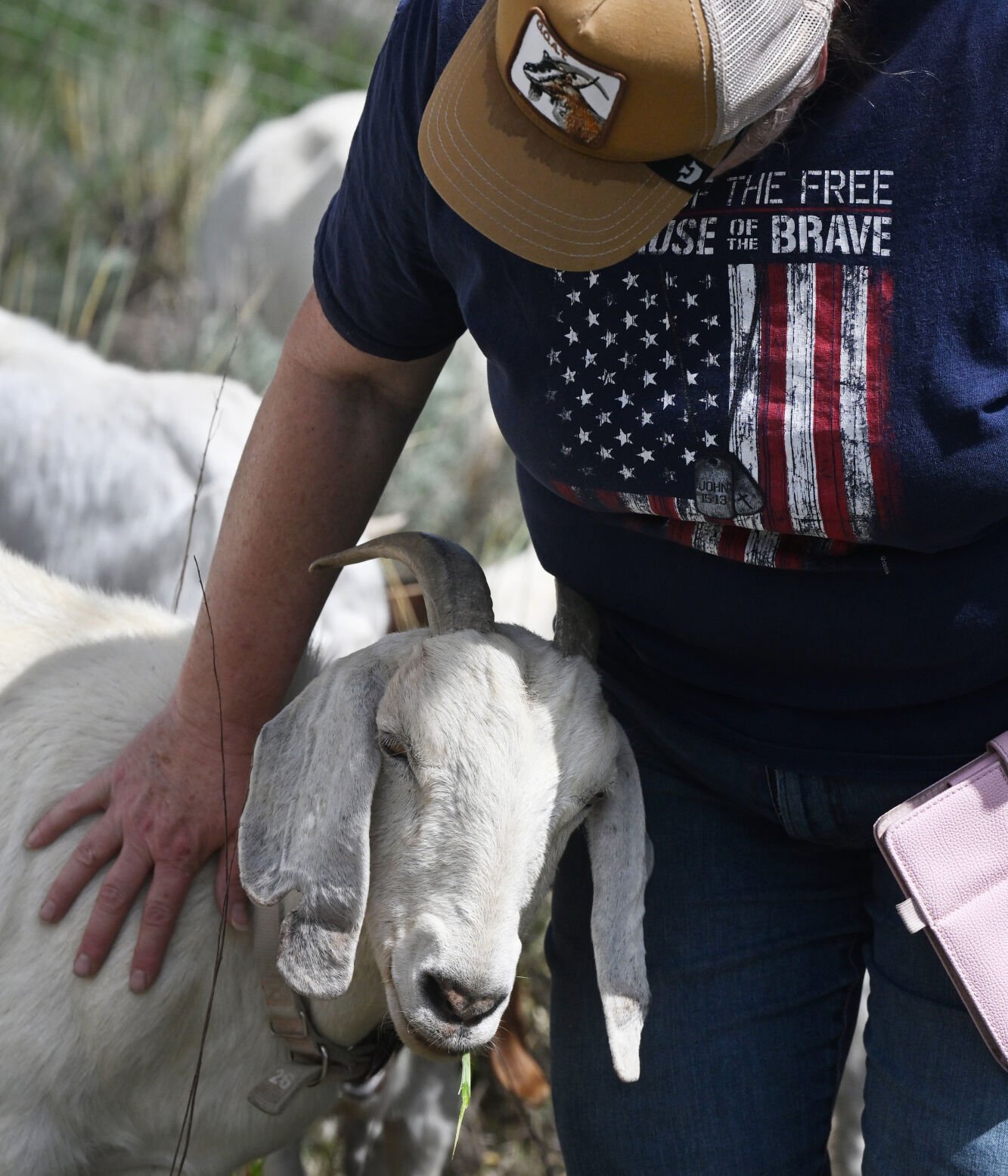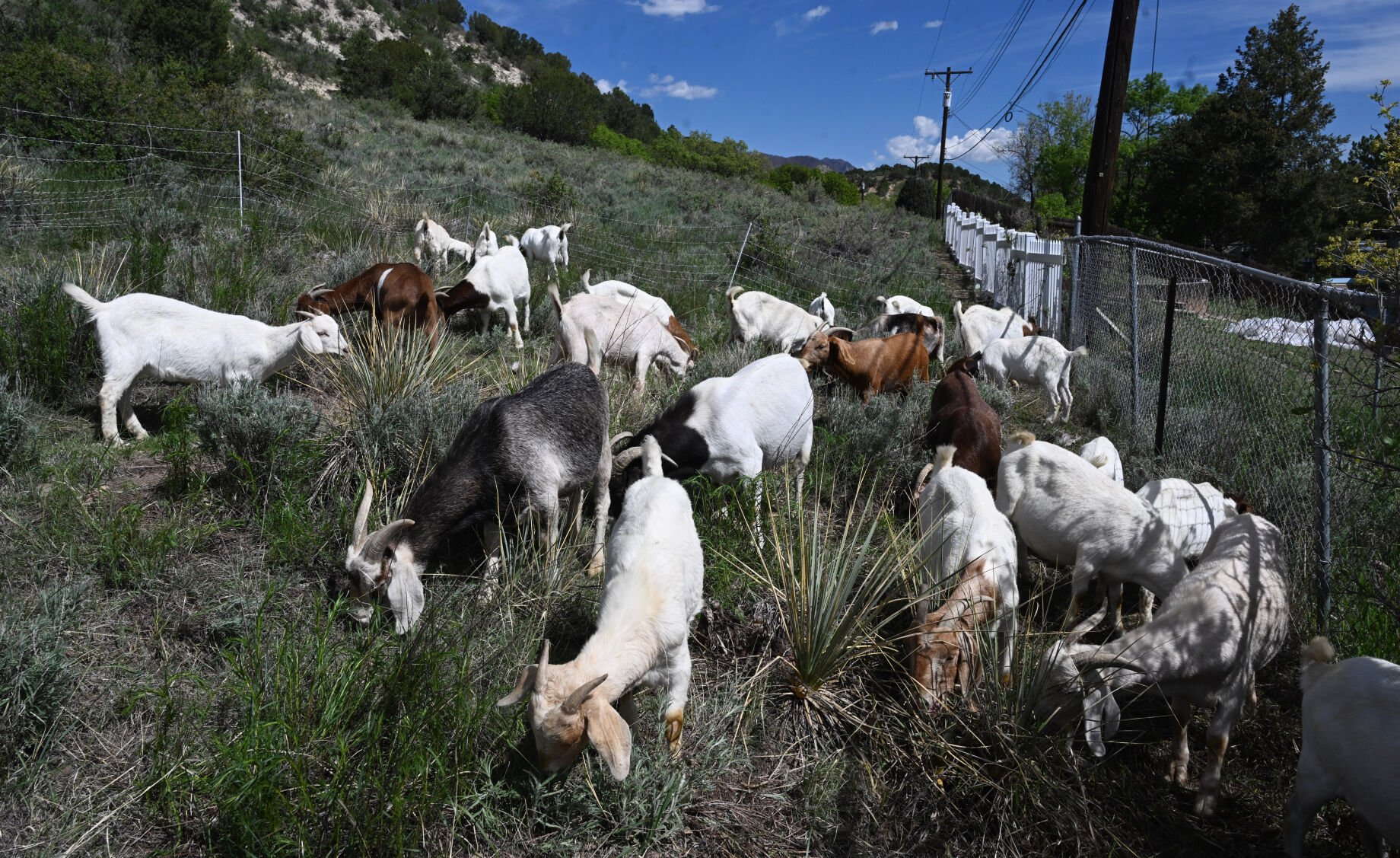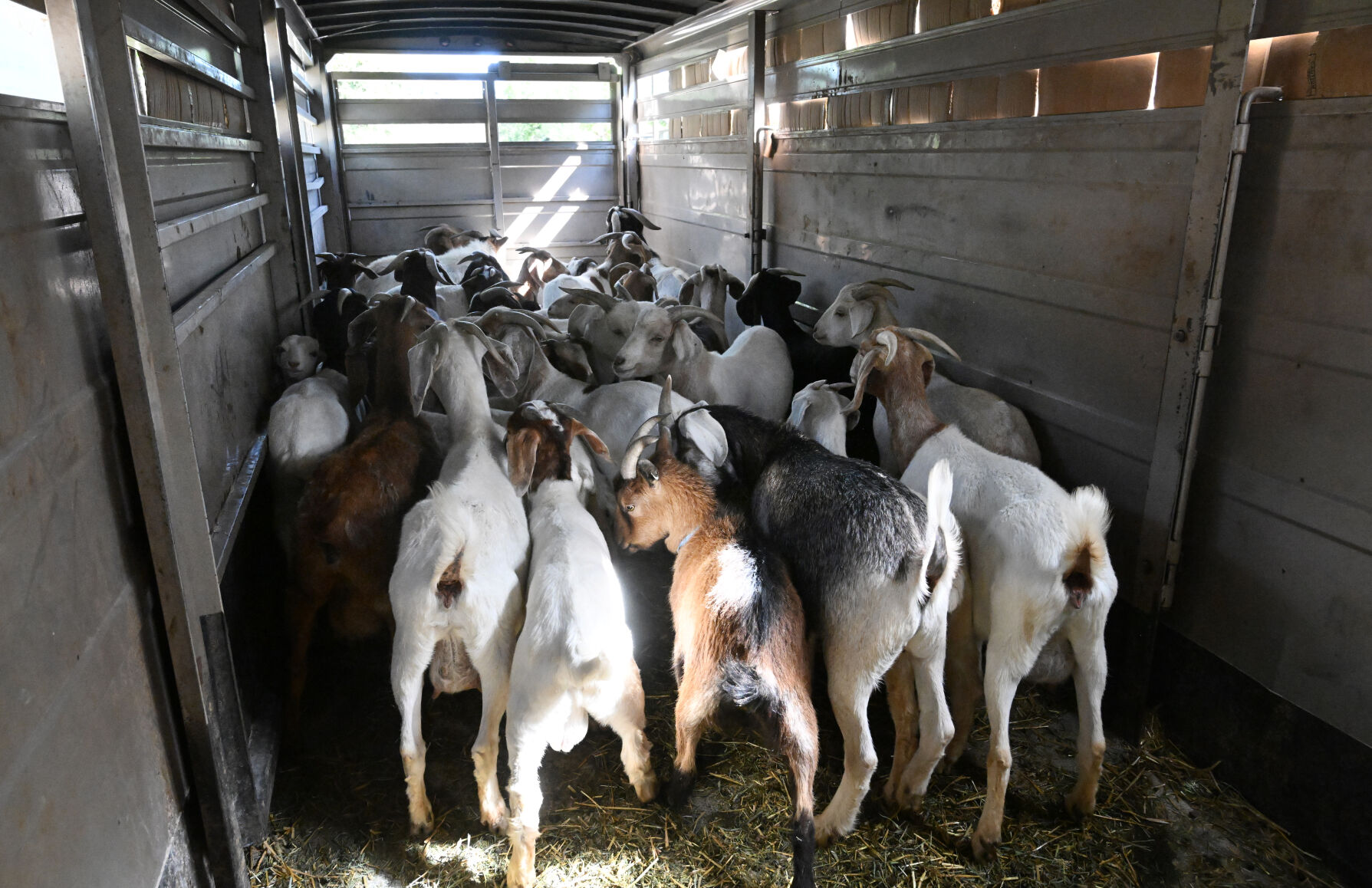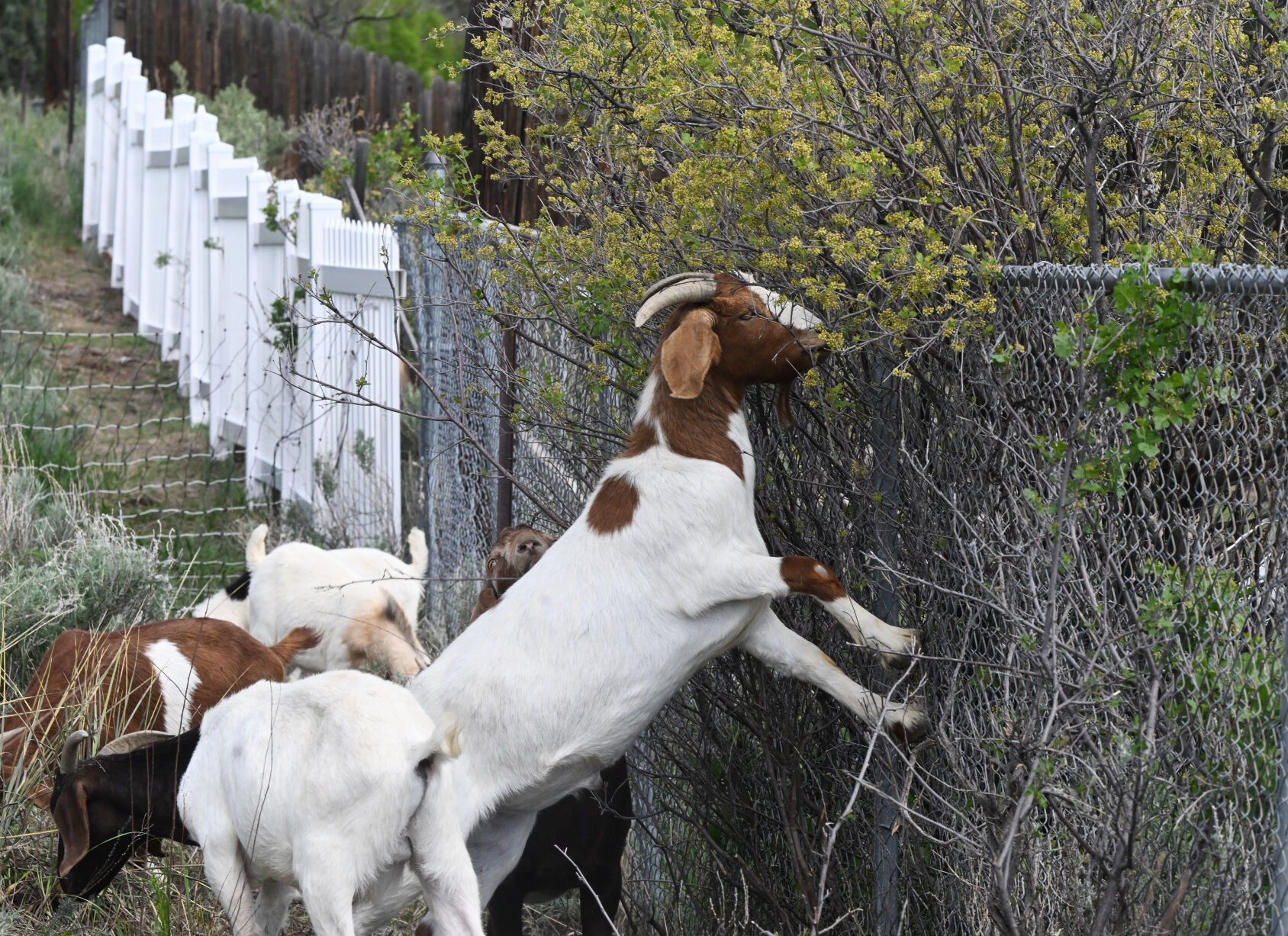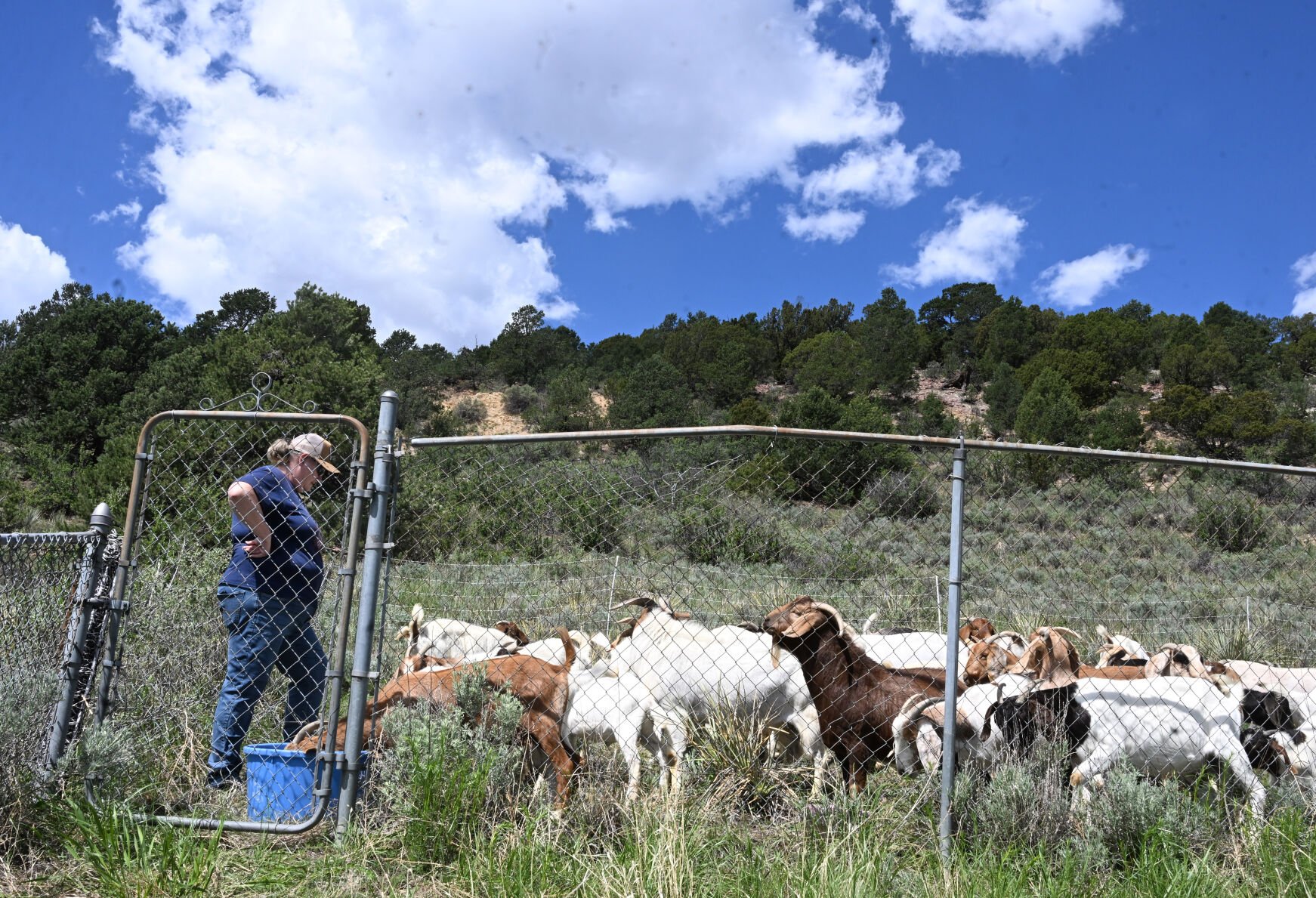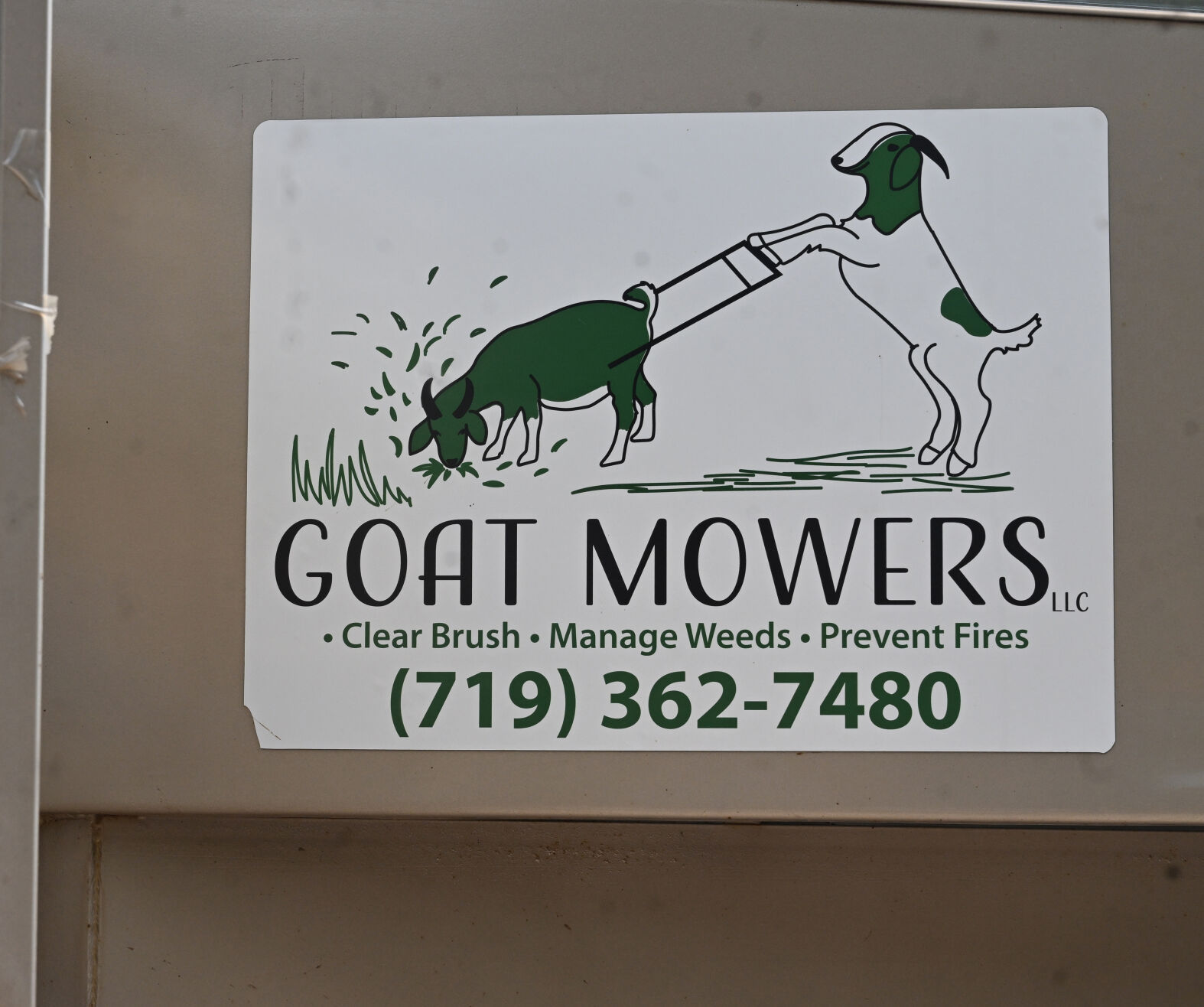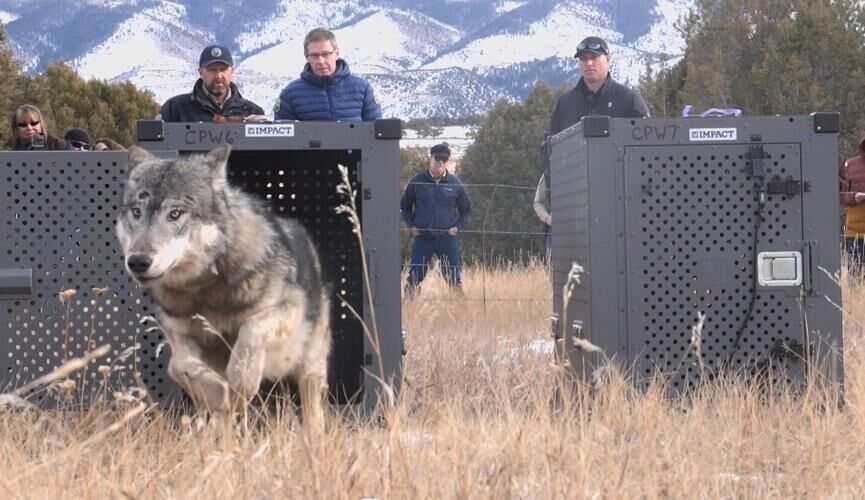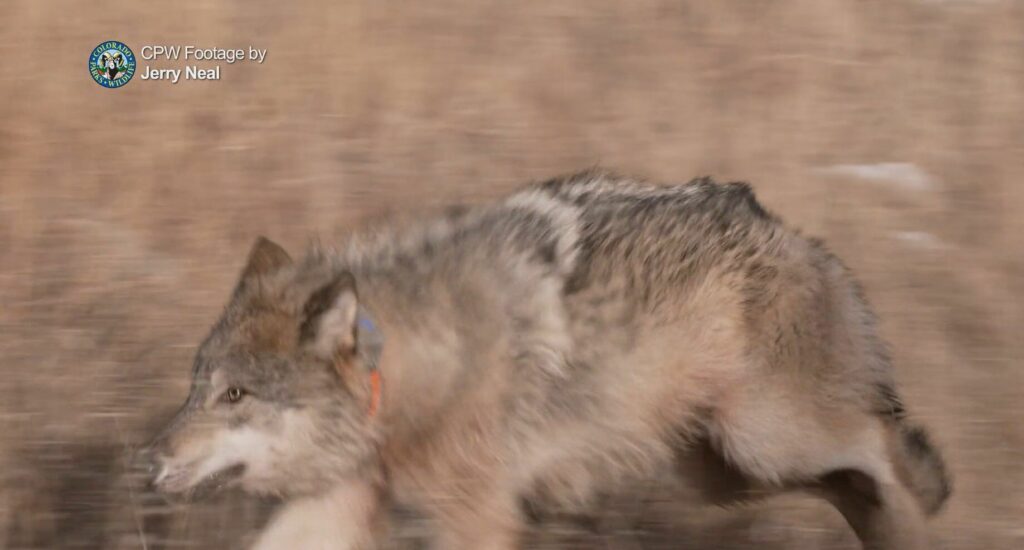Goats help Colorado Springs property owners with fire mitigation
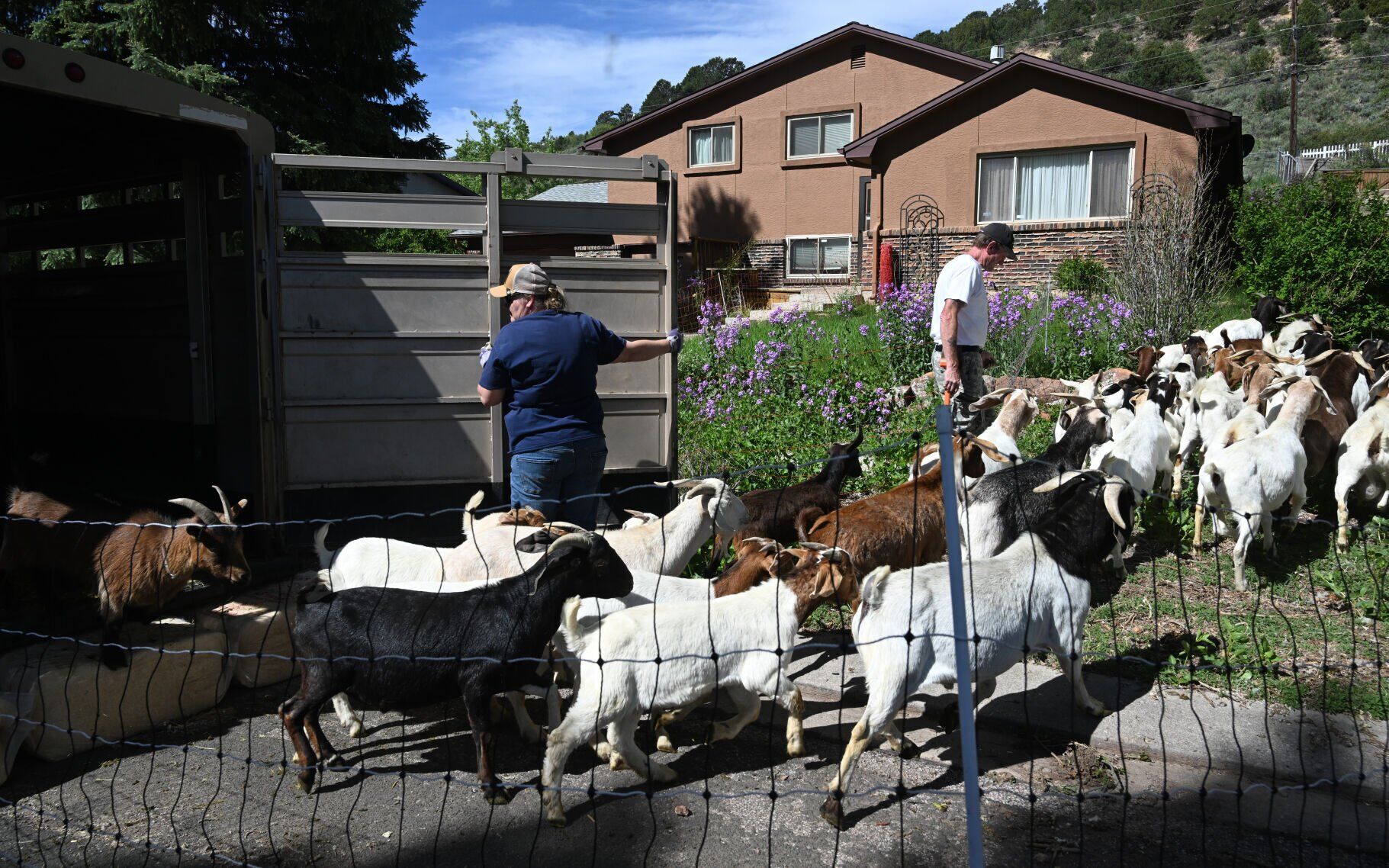
A herd of hungry firefighters is getting antsy in a trailer off Old Ranch Road in northern Colorado Springs.
It’s mid-morning, and more than 40 goats are backed up to a 5-acre lot lush with weeds, grass, yucca and scrub oak – a scrumptious buffet for goats, but worrisome fire fuel for homeowners.
Kimberly Jones, owner of Goat Mowers, pulls open the trailer door and frees the hardworking Boer goats, who act as four-legged fire mitigators, chomping the unwanted vegetation. Jones estimates it’ll take Brooks, Dunn, Jack, Jill, Penelope, Sacajawea, Bruiser, Remington, Walter and the rest of the pack six to eight hours to finish the job.
“They can eat all day long and never get fat,” she said. “When their bellies get full, they can bloat and get bigger. Sometimes they lay down, 15 minutes tops. … But they take a lot less breaks and are more efficient than anything a human could do out here.”
Weed-eating goats to make wintertime appearance at Bear Creek Regional Park
No matter how long the job takes, Jones very rarely leaves her babies overnight, what with the wildlife that could attack them. When she and her husband, Karl, have had to spend a few nights at a property, she always loads the goats in the trailer while she and Karl sleep in a tent.
As the couple watches this May morning, the herd scours the landscape.
“They’re like little kids,” Jones said. “They run back and forth to figure out what they like best.”
Some nibble at the ground cover while others, such as Annie, squeeze in between the scrub oak, standing on their hind legs to get at the taller branches. Each goat can eat about 10 pounds of scrub oak leaves per day. The goats don’t kill the tree, but they bring the canopy off the ground, a big help in the event of a fire.
“You can’t get a weed whacker in there for nothing,” Jones said. “And if you do that method, you’re leaving dry fuel on the ground because most people don’t rake it up and haul it back out. Goats eat it all the way down.”
Lovers of sunshine, brushing and humans: Meet the dairy goats at Cheyenne Mountain Zoo
Partway into the morning, Jones’ husband delivers a goat-approved treat – animal crackers. He walks around, offering the palate cleansers. Elderly 8-year-old Snowball clings to him like a bur, now off-task in dogged pursuit of the sweet, crunchy wafers.
The goats aren’t just workers; they’re family. They were part of Jones’ stepfather’s original line going back 35 years. Her children showed them for years. But once that ended, she wasn’t sure what to do with them, so she sold them off here and there until deciding that wasn’t an option.
Her cousin and a friend had an idea: fire mitigation. Jones was intrigued. She’d watched goats work their magic on TV and knew about the out-of-state herd that came in every year to clear out Bear Creek Regional Park.
“Everybody was doing massive jobs,” she said, “but nobody really helps the homeowner.”
Live Well: Goat yoga comes to Colorado Springs
Three seasons ago, she decided to fill that void in the market and now has customers all along the Front Range.
“They got the dead stuff and raised the canopy on those scrub oaks. And no mess,” said Cindi Perrin, a repeat customer who has a 5-acre property in Woodmen Valley. “They ran through and took care of everything. We’ve had landscapers come out and try to clear out between the scrub oaks, and nothing was as good as those little goats. Plus, they’re so cute.”
A goat is an ideal fire mitigator because it doesn’t reseed in its manure, unlike other ruminant animals such as cows, which do drop their seed. Jones’ crew did a job in Rockrimmon a couple of years ago that took four days. They went back last year and spent only one day on the job because the noxious weeds didn’t reseed and return.
After the goats grind the weeds and their seeds to a powder using a circular chewing motion with their bottom teeth (they lack upper teeth), what comes out the other end is filled with nitrogen and is a boon for the soil. And goats’ hooves loosen the soil just enough to bring oxygen, moisture from rain, sunlight and good bacteria.
“You can’t get any greener or better for your ecosystem than the goat,” Jones said.
Hiring the herd costs $1,200 per day and $1,400 if a steep hill is involved, as it’s challenging to bring in the equipment. Homeowners can receive a tax credit for doing fire mitigation with goats.
Naturally, the Joneses take advantage of the goats on their 40-acre property out east. It’s easy to spot their place – it’s the only one without tall grass.
Curious, agile teddy bear: Meet Matschie’s tree kangaroo at Cheyenne Mountain Zoo
While most hire Goat Mowers in the warmer months, Jones encourages homeowners to have work done in winter. Cleaning out the dry, dead stuff in January means a lower fire risk and more space for green growth come spring.
The couple love their goats, evident by the way they interact with and care for the animals. And not only are the goats more effective than a lawnmower, they also bring personality and joy wherever they work.
“It’s so much more peaceful,” Jones said. “It’s more therapeutic, entertaining. The whole neighborhood comes out to watch.”
Contact the writer: 636-0270
Goat Mowers, 362-7480, cogoatmowers.com



